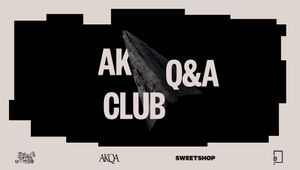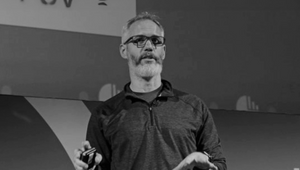
Damn The Race to the Bottom: AI Shouldn't Be Cost-Cutting Machine

Fuck extractive capitalism. Fuck the race to the bottom.
We’ve seen what happens when you treat creativity like a cost centre: bland garbage, everywhere, all the time. This isn’t innovation. It’s surrender.
AI doesn’t have to be a cost-cutting machine. It can be a liberation engine.
These are some of the thoughts that have been running through my head as I grapple with explaining this new technology to people.
We have all heard the phrase, ‘AI is not here to replace people’, a million times. It's like a safety blanket for some, and yet, I could counter this with the argument that, in some cases, AI is here to replace people. In fact, it’s been here for years now, slowly replacing people (chat bots, anyone?).
But one thing I stand by, with all my experience in AI, is that it cannot replace the human creative process.
Being asked to cut 20–30% of creative costs and labour under the banner of ‘AI’ is unimaginative at best, and corrosive at worst. It drains the value of human creativity and concentrates it in fewer and fewer hands, hollowing out the very industry it claims to improve.
But there is another way. AI doesn’t have to be a blunt instrument for cost-cutting; it can be a catalyst for something more ambitious, more humane, and more interesting.
One way we can use it is to close the gap between concept and realisation. Sure, it may not deliver the perfect version of the idea. But it makes the idea tangible, fast. You see its flaws and strengths more clearly. You can iterate. You don’t have to ship the first pancake anymore.
But the deafening, hyperbolic buzz around AI makes its limits and strengths feel intimidating and opaque. (I think a lot of this is a linguistics issue: Three years ago, we talked about computer vision, machine learning, transformer models, recommendation
engines and now everything is ‘AI.’ It’s the equivalent of grouping a bike, pogo stick, hang-glider, car, and rocket as ‘transportation’ – true, but not helpful in telling people how to use them effectively.)
The first lever most clients pull is the obvious one: efficiency. Do more for less. That mindset is problematic because it confuses production with intent. Yes, you can spit out an ad with a 17-word prompt. But all the micro-decisions that make art great get flattened—either by chance or by picking the most generic options.
It also creates an unsustainable creative ecosystem. Today’s generative AI models are built on the world’s creative output—mostly uncompensated. If we don’t value and sustain human creativity now, future creativity will be nothing but AI-remixed leftovers.
I believe there’s a better path. We need to rethink how creativity shows up in the world, and how it can actually improve human-to-human connection.
More troubling to me is the bold acceleration of value in a tiny fraction of the world’s hands. It’s undermining the ability for the workforce to evolve along with the technology.
The best analogy I’ve found is painting to photography to motion pictures.
Photography ‘replaced’ creating accurate likenesses for millions. But it was only because you could make photographs cheaply and quickly that we have cinema. If we didn’t have photography, I don’t think anyone would have thought of making 24 paintings a second.
Right now, most businesses are in the ‘faster painting’ efficiency mindset with AI. It can be a transformation engine that lets us ditch the legacy bullshit and make wild, weird, relevant, brilliant stuff at a pace and scale that old production workflows can’t match.
When I was at Nexus Studios, we worked with the amazing team at Colenso BBDO on a project for Pedigree – yes, the dog food company. We trained mini models on each of the
shelter dogs and used those to create high quality ‘studio’ photography for DOOH ads. The ads were trafficked in areas near the shelter, and each ad contained a QR code to adopt the dog.
It’s not possible to do ‘studio shoots’ of shelter dogs. On a daily basis. In every city around the world. But now we can get the same output as if you did.
How else can we think of AIs to create a better, more creative, more equitable world? I want to do better with different, not more with less.
--
Colin will appear at next Thursday night’s inaugural Q&A Club Auckland event, hosted by AKQA, The Sweetshop, LBB, and The Tuesday Club.














